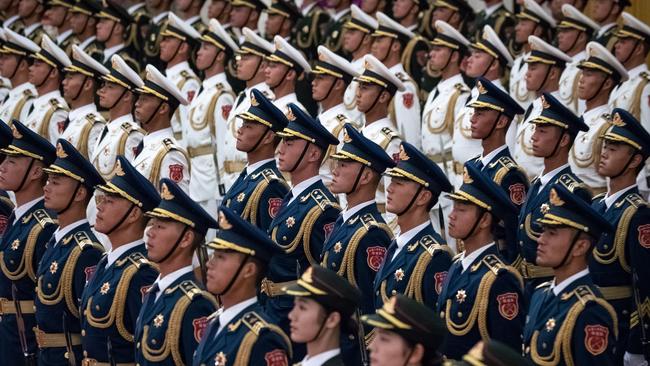Xi belts out trade benefits for Africa
Xi Jinping will be pushing to highlight China’s connections with Africa at forum that starts in Beijing on Monday.

Under pressure from the US trade war, President Xi Jinping will be pushing to highlight China’s connections with Africa at the Forum on China-Africa Co-operation that starts in Beijing on Monday.
Xi will be the keynote speaker at the two-day forum which aims to bring together African leaders, including South African President Cyril Ramaphosa and Rwanda’s Paul Kagame, as well as UN secretary-general Antonio Guterres.
The summit, which is designed to boost China’s ties with Africa, was first held in Beijing in 2006 and then in Johannesburg in 2015.
China by-passed the US as Africa’s largest trading power a decade ago, with total trade now worth more than $US170 billion ($234bn) a year. Trade volumes hit more than $US99bn in the first six months of this year, while China’s investments in Africa have risen to about $US3bn a year in Africa for the past three years.
The forum will be a chance for Xi to promote his ambitious Belt and Road infrastructure initiative and to stake out China’s role as a major backer of African development.
Speaking in Beijing on Thursday, Xi said China and the African countries should take the BRI as an opportunity for greater synergies between the development strategies of China and Africa. He said China and African countries would also be stepping up their co-ordination at the UN Security Council to safeguard the legitimate interests of developing countries, including African nations.
China believes it can play a key role in the development of Africa. Its Ministry of Commerce said this week that China would continue to “deepen mutually beneficial economic co-operation and trade” with Africa and would help the continent “foster new drivers of economic growth”.
Vice-Commerce Minister Qian Keming said China would be announcing a new set of measures next week that would further deepen economic and trade ties with Africa.
He said 10 major plans already announced between China and Africa had been fully implemented, with the two sides making breakthroughs in co-operation in areas of manufacturing, agriculture, finance, tourism and aviation.
“In the next five to 10 years, China’s processing trade with Africa will not remain in traditional fields like textiles, but shift to hi-tech sectors,” Wei Jianguo, a former Chinese vice-minister of commerce told the China Daily this week.
China sees its relations with Africa as a model for South-South co-operation as well as an avenue to promote its own state-sponsored model of economic development. But it also sees Africa as a key source of critical resources and a growing potential market for its products.
Projects such as the Ethiopa to Djibouti railway and the building of a standard-gauge railway from Kenya’s capital Nairobi to Mombasa are seen by Beijing as examples of the benefits of its investments. But, like some other projects now badged under the BRI flag, there is criticisms of the cost of projects blowing out and leaving local countries with high debt levels. The Nairobi-Mombasa railway, built at an estimated $US3.2 billion, has been criticised as too expensive and which could have been done more cheaply by upgrading existing tracks.
Writing in the China Daily this week, Yi Fan, who was described as an “expert in international studies”, acknowledged the criticism of African debt and acknowledged “isolated examples of misconduct and mismanagement by Chinese officials”.
He said the debt problem could be blamed on Western countries and China had repeatedly written down or cancelled the debts of African countries. “The people of Africa are the best judge of China-Africa co-operation,” he said.



